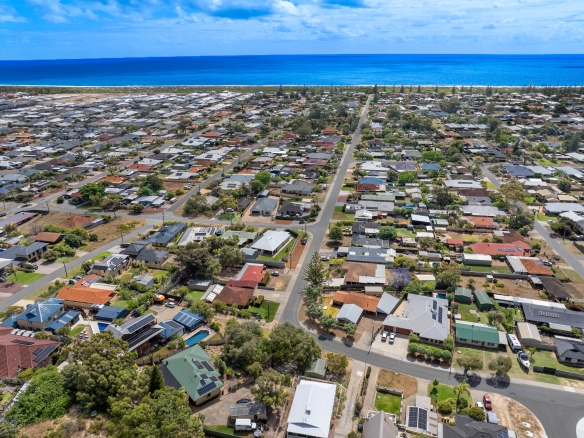Are Property Investors Driving Australia’s Housing Crisis?
Property Investors Housing Affordability in WA: 7 Hard Questions
Property investors housing affordability is the debate Australia can’t stop having: do investors inflate prices and reduce access for first-home buyers, or do they fund the very supply that keeps WA growing? Below, we pose seven hard, neutral questions focused on Mandurah and WA — not to inflame, but to inform.
Table of Contents
- 1) Do yields signal investor-led inflation?
- 2) Would a 5-property cap fix affordability?
- 3) If negative gearing vanished, who wins?
- 4) Should investor reserve funds be mandatory?
- 5) What if vacant homes had to be leased or sold?
- 6) Do investors actually fund long-run supply?
- 7) Where’s the balance for WA & Mandurah?
- Talk to local experts
1) Do yields signal investor-led inflation?
When purchase prices rise faster than rents, gross rental yields usually compress. If yields remain firm while prices surge, it can indicate strong investor appetite chasing returns, especially in coastal lifestyle markets like Mandurah. Yet yields also reflect housing scarcity and population growth — not just investor demand. Public data from the Australian Bureau of Statistics and analyses by the Reserve Bank of Australia can help track the relationship between rents, prices and incomes over time.
2) Would a 5-property cap fix property investors housing affordability issues?
Some argue that limiting individuals to five investment properties would trigger sell-downs, boost listings and soften prices. In the short run, extra stock could ease competition for first-home buyers. But would those homes remain in the owner-occupier pool, or be re-absorbed by other investors with stronger balance sheets? And would the policy inadvertently reduce new rental supply, pushing up rents?
3) If negative gearing vanished, who wins?
Removing negative gearing and deductions for maintenance would likely reduce leveraged investor demand. That might relieve price pressure — but it could also curb the private capital that often underwrites medium-density and build-to-rent projects. International cases suggest that removing investor incentives without expanding construction capacity can reduce supply, with mixed effects on affordability. The Productivity Commission has previously highlighted the importance of supply responsiveness in affordability outcomes.
4) Should investor reserve funds be mandatory?
A required, annually audited maintenance reserve (e.g., 3–6 months’ rent) could protect tenants from deferred upkeep, reduce emergency repairs and lift standards — all positive for affordability if it keeps stock in rentable condition. The trade-off is a higher entry bar for small investors, potentially concentrating ownership among larger players. Would that improve property investors housing affordability, or consolidate market power?
5) What if vacant homes had to be leased or sold?
Vacancy taxes and “use-it-or-move-it” rules aim to push idle stock into the market. In tight-vacancy regions this can help, but measuring “genuine vacancy” is complex (renovations, probate, short-term transitions). Enforcement friction may blunt the impact. Still, in hotspots, even modest vacancy reductions can ease rent pressure — a theme visible in global research summarised by central-bank and academic sources (RBA publications provide helpful overviews).
6) Do investors actually fund long-run supply?
The counter-view is that investors are a vital part of the housing finance stack. Pre-sales to investors can de-risk projects; build-to-rent relies on investor capital; and many small infill projects wouldn’t proceed without landlord buyers. If policy shock forces mass sell-downs or removes incentives, construction pipelines may stall, trades and materials demand may fall, and the resulting supply shock could worsen affordability after a short-term price dip. For growth corridors across Perth’s south and Mandurah, this systemic risk can’t be ignored.
7) Where’s the balance for property investors housing affordability in WA?
Polarised debates rarely fix complex systems. A pragmatic WA approach could combine:
- Pro-supply planning: faster approvals, serviced land and infill incentives.
- Standards: clearer maintenance expectations (reserves or insurance-based solutions).
- Targeted demand tools: calibrate investor settings without choking development finance.
- Data transparency: regular public reporting on yields, vacancy and completions (e.g., ABS & RBA dashboards).
In short: if the goal is genuine property investors housing affordability, WA needs policy that adds dwellings while discouraging unproductive hoarding — without collapsing the private capital that builds the homes.
Talk to Local Experts in Mandurah
Whether you’re a first-home buyer, landlord or developer, Mandurah City Real Estate can help you navigate pricing, yields and policy settings in the Peel Region.
Free Sales Appraisal · Rental Appraisal
Call: 08 9521 9090 · Email: hello@mandurahcre.com.au



Join The Discussion